Wilberforce University high-steps into a musical revival with its first marching band
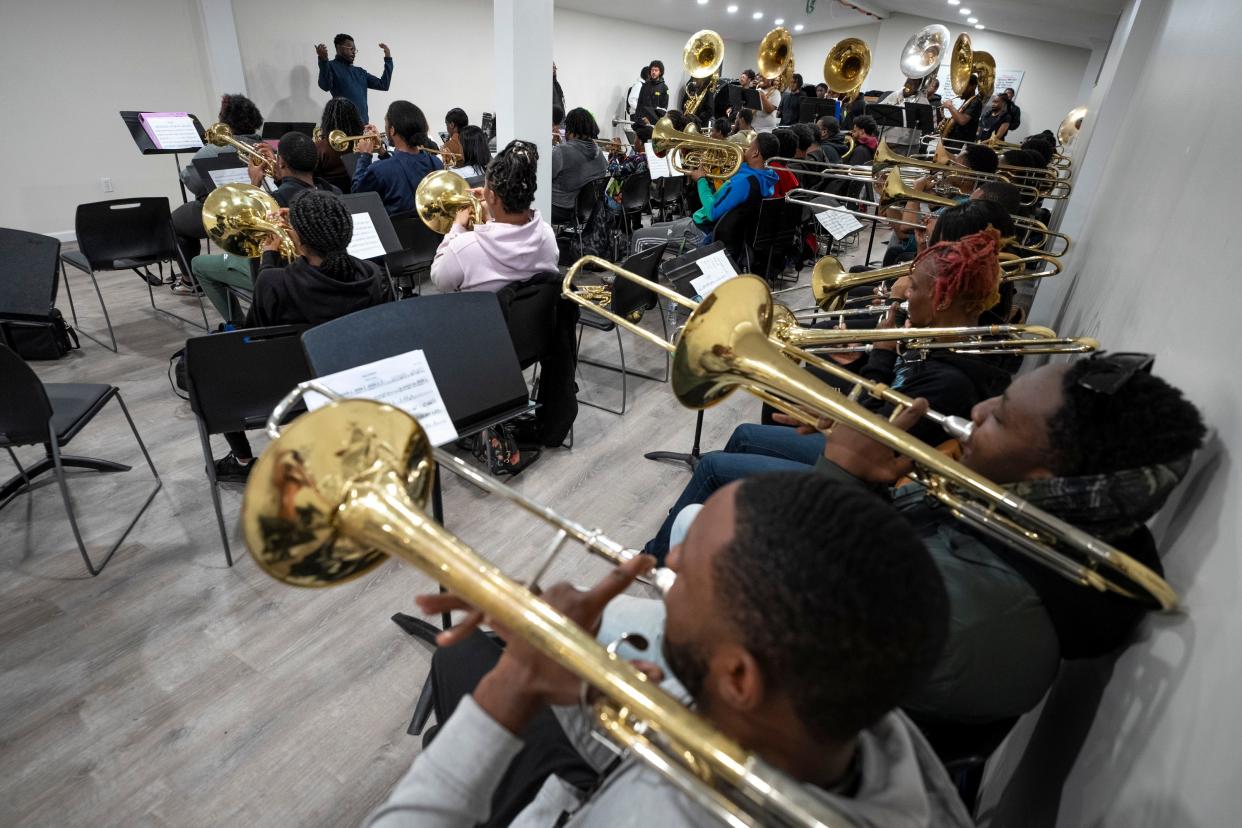
WILBERFORCE — A musical explosion poured out of the nondescript white building on Wilberforce University’s campus. Just past the door, dozens of students crammed into the one-room space for Tuesday night’s band practice.
Mallets banged on bass drums, their sound reverberating off the walls. The students, their backs arched from carrying the weight of the drums, swayed back and forth.
A line of sousaphone players tapped their toes with the beat. At once, the brass and woodwind sections all stood up and started to dance. “Let’s go!” they all shouted, raising their instruments in the air and stepping from side to side. The staccato of drumsticks tapping away punctuated the room.
Introducing Wilberforce University's Hounds of Sound.
For the first time in the university’s 167-year history, the nation’s oldest private historically Black university has a marching band.
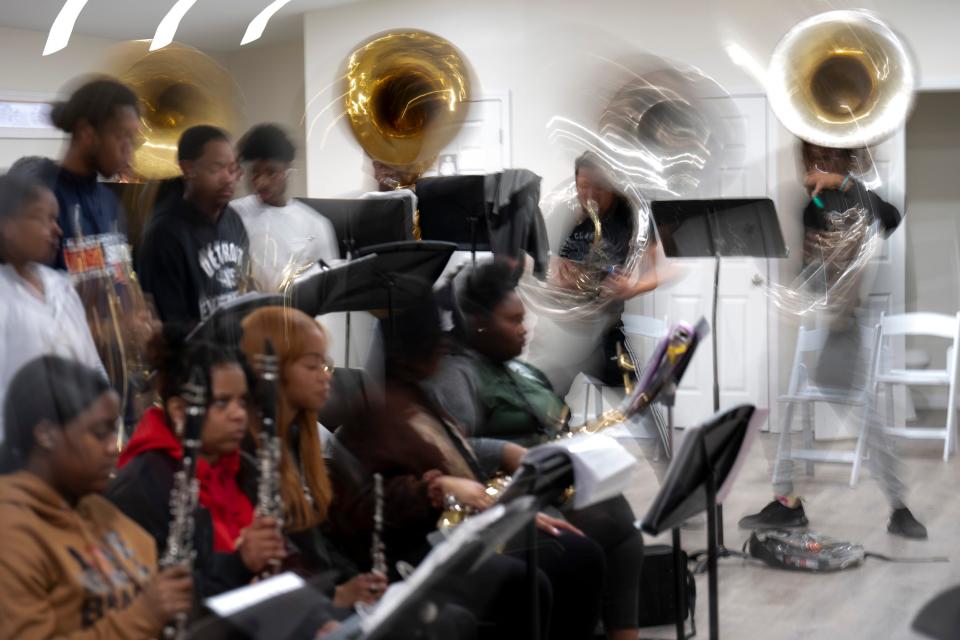
In 2021, Wilberforce hired two new faculty to help reimagine the university’s music department: James McLeod and Virgil Goodwine. McLeod would serve as the department’s chair, and Goodwine would be the school’s first director of instrumental music and ensembles.
Goodwine’s first order of business, he said, was to start a band program from scratch.
Known for their energetic choreography and wide-ranging repertoires, marching bands play a central role in shaping the culture at HBCUs. They are often the public face of the university and act as its ambassadors, Goodwine said.
When he started doing some research on the history of Wilberforce’s music programs, he discovered the school had a concert band at some point during the 1930's, but it never had a marching band.
Goodwine previously helped create a band program for a school district in Michigan, so building a program at the higher education level raised the bar, he said.
Goodwine started traveling statewide to recruit for the new marching band. He visited high schools across Ohio, meeting with band directors and students to let them know about the Wilberforce program and the scholarships it offered.
By the time the 2022-2023 school year rolled around, the band had 160 students signed up, way more than Goodwine said he was expecting.
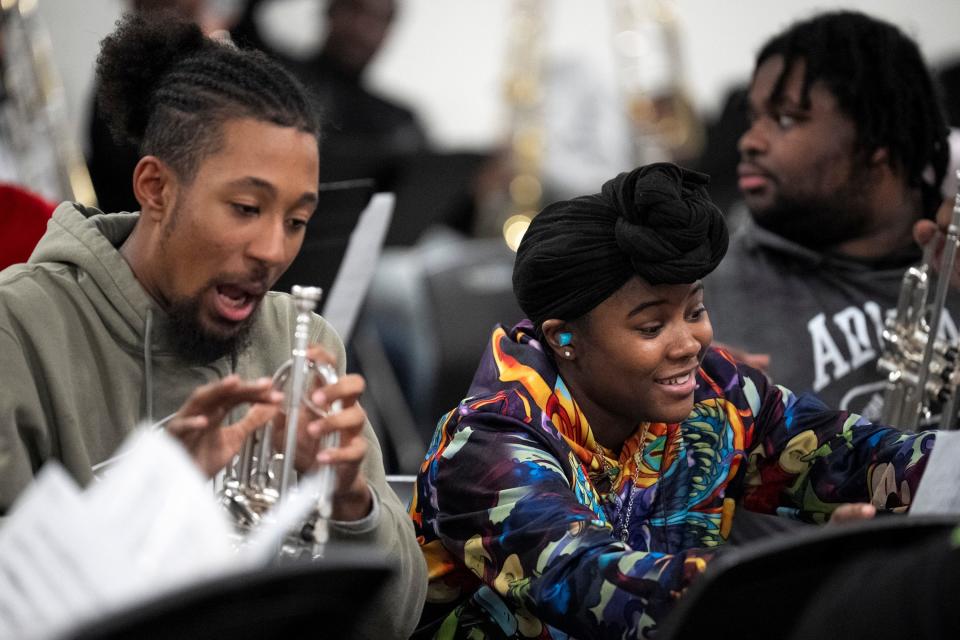
Today, the band is 147 students strong and is already on its way to national recognition in just its first year.
In February, the Wilberforce Hounds of Sound were invited to march in the Mardi Gras parades in New Orleans. An organizer had seen some of the band’s performances on YouTube and was impressed.
The band marched in four different parades and faced off in a few band battles with other HBCUs.
“For the HBCU band world, marching in Mardi Gras is the peak. It’s like being invited to the Rose Bowl or the Macy’s Thanksgiving Day Parade,” Goodwine said.
In addition to Mardi Gras, the Hounds of Sound marched in the Cincinnati Red's opening day parade on Thursday and will perform at the HBCU Classic for Columbus at the Schottenstein Center on April 22.
Goodwine said the invitations are a testament to the students’ hard work. The band practices four nights a week and often performs at different events on the weekends. That dedication goes beyond their instruments and marching, though.
Goodwine, who has a master’s degree in music and doctorate in higher education leadership, did his thesis research on student retention in HBCU bands. Music is important, but academics come first, he said.
Band members are required to attend mandatory study halls and report their grades to Goodwine to stay in good standing.
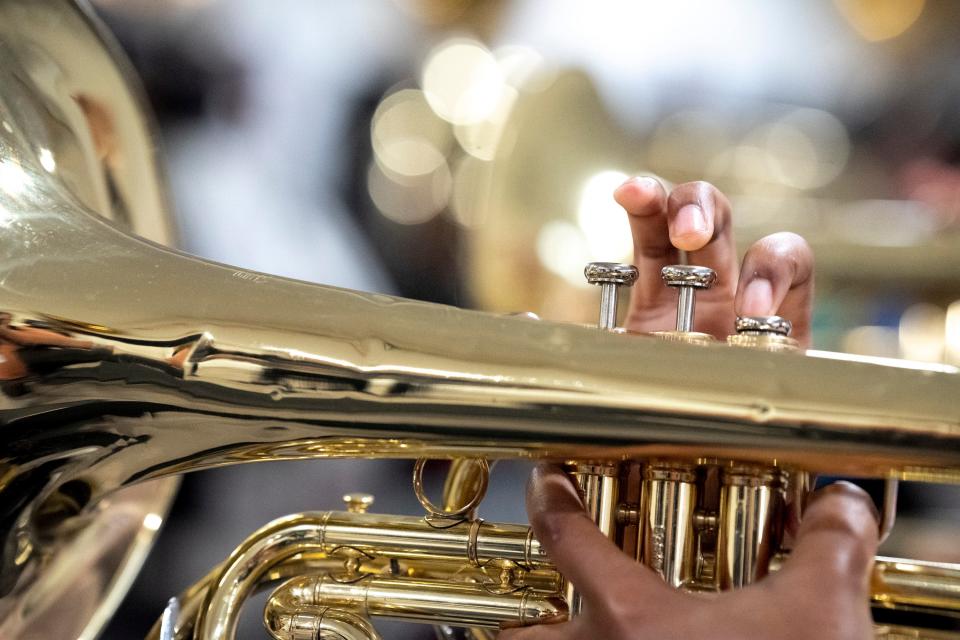
Lia Smith, a senior health sciences major from Columbus’ East Side, said she believes the Hounds of Sound has changed campus for the better. Smith said she picked up the saxophone in elementary school but, beyond playing at church, hadn’t played in a band for years.
When she heard about auditions to play for the Hounds of Sound, Smith decided to give it a shot.
“It’s the best thing I could’ve done,” she said.
Smith said she’s glad that the band has brought more prospective students to campus and more opportunities. With about 550 students currently enrolled at Wilberforce, the 147 band students all on scholarships make up almost a third of the student population.
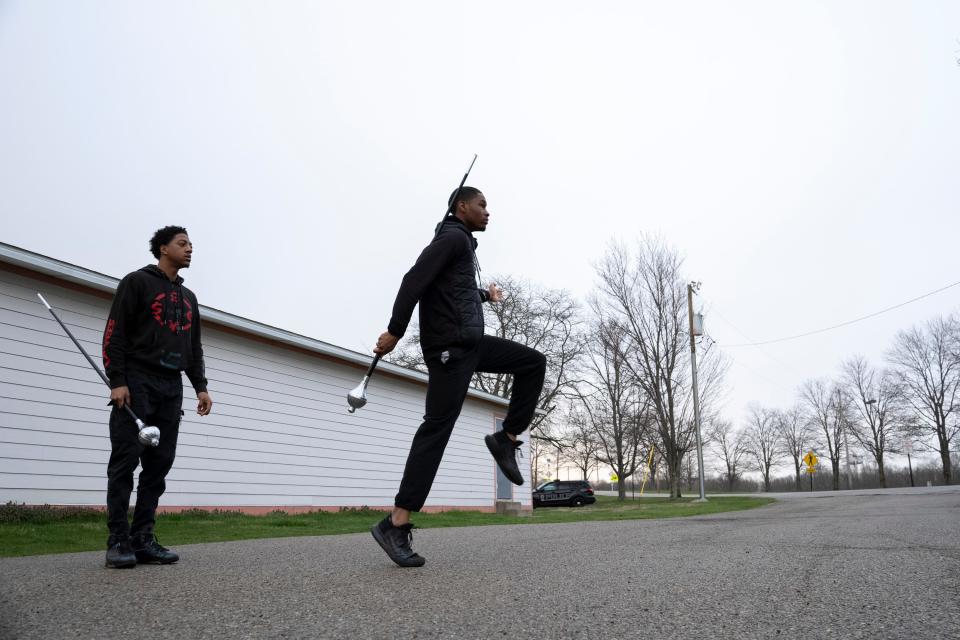
“Music is involved in a lot of the HBCU culture,” said Fatima Mbacke, a freshman clarinet player from Columbus' South Side. “It really brings people together.
“It’s kind of ironic that it’s just now happening,” Mbacke said.
“We’re the first in a generation,” her friend and bandmate Ayana Millsap said. “We laid the foundation forever.”
The band has certainly garnered a lot of attention, Goodwine said, especially from alumni who never got to experience a Wilberforce University marching band.
Goodwine’s goal is to keep building the band and making a name for the Hounds of Sound among other HBCU programs.
“To not have one and then to suddenly have one of this magnitude,” Goodwine said, “it’s like we’ve become the face of the university overnight.”
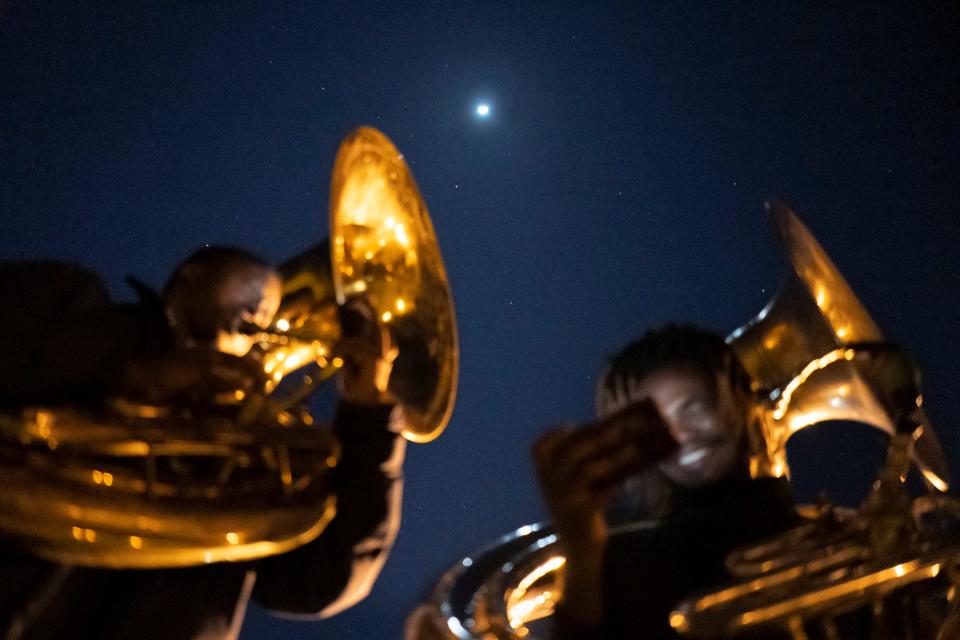
Sheridan Hendrix is a higher education reporter for The Columbus Dispatch. Sign up for her Mobile Newsroom newsletter here and Extra Credit, her education newsletter, here.
shendrix@dispatch.com
@sheridan120
This article originally appeared on The Columbus Dispatch: Hounds of Sound give Wilberforce U its first marching band in history

